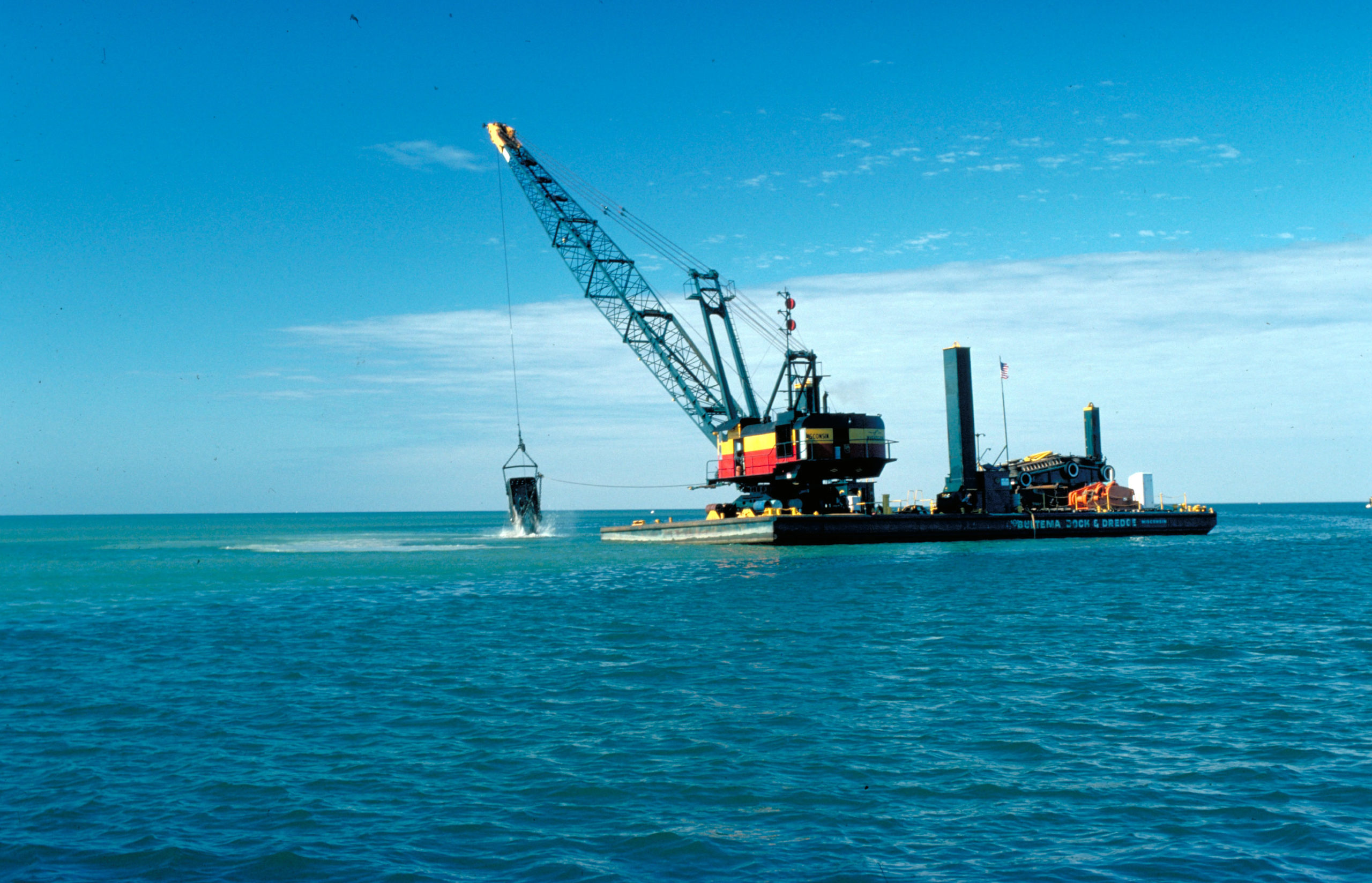- FG, Lagos Govt Disagree Over Dredging
The Federal Government on Monday asked dredgers to disregard a stop work order issued to them by the Lagos State Government.
In a statement issued by the Permanent Secretary in the Ministry of Mines and Steel Development, Mr. Mohammed Abass, in Abuja, the Federal Government said federal laws were superior to state laws as far as mining and inland waterways were concerned.
Abass also accused the Lagos State Government of distorting a recent ruling of the Court of Appeal sitting in Lagos on dredging activities, adding that federal law officers were still studying the details of the case.
He said, “The attention of the Ministry of Mines and Steel Development has been drawn to a recent ruling of the Court of Appeal sitting in Lagos and several reports ascribed to various officials of the Lagos State Government regarding a purported stop work order issued to duly licensed dredgers operating in the state.
“While our legal officers are studying the judgment of the Court of Appeal relating to the particulars of the case in question, in the interim, we wish to ask all duly licensed dredgers to disregard the stop work order issued by the Lagos State Government and to continue with their lawful operations.
“Particularly, we wish to frown on the way officials of the Lagos State Government have gone about deliberately distorting the pronouncement of the appeal court in this matter.
“It is trite to state that by virtue of the Constitution of the Federal Republic of Nigeria (1999 as amended), federal laws in respect of administration of mining activities and utility of inland waterways supersede those of states.”
Abass added, “A cursory review of the ruling of the learned justices of the Court of Appeal indicates a clear recognition of the powers and responsibilities of the various arms and organs of government with respect to administration of mining and inland waterways.
“We are therefore at a loss as to why officials of Lagos State Government will wilfully attempt to inverse the ruling of the court to suit their much anticipated outcome. The learned justices were clear about the extent and limitation of powers of the various arms of government.
“The ministry takes this development with all seriousness and solemn commitment. We hereby call on all legitimate dredgers to disregard the order and continue with their lawful operations without let or hindrance.”
Meanwhile, a civil society group, Committee for the Protection of Peoples Mandate, on Monday faulted the call by the National Inland Waterways Authority on operators in the sector to disregard a seven-day ultimatum issued to them by the Lagos State Government to comply with the relevant laws, describing it as embarrassing and capable of leading to anarchy.
In a statement signed by the CIPPM, the Executive Chairman, Mr. Nelson Ekujumi, the group said it was disturbed and embarrassed by the attempt of the NIWA “to violate the constitution by disregarding and interpreting to suit itself, an unambiguous judgment of a court which is a law and thereby undermine public peace and safety.”

 Forex2 weeks ago
Forex2 weeks ago


 Naira2 weeks ago
Naira2 weeks ago
 Billionaire Watch1 week ago
Billionaire Watch1 week ago




 Naira2 weeks ago
Naira2 weeks ago




 Naira1 week ago
Naira1 week ago




 Naira4 weeks ago
Naira4 weeks ago


 Naira3 days ago
Naira3 days ago
 Nigerian Exchange Limited4 weeks ago
Nigerian Exchange Limited4 weeks ago






















